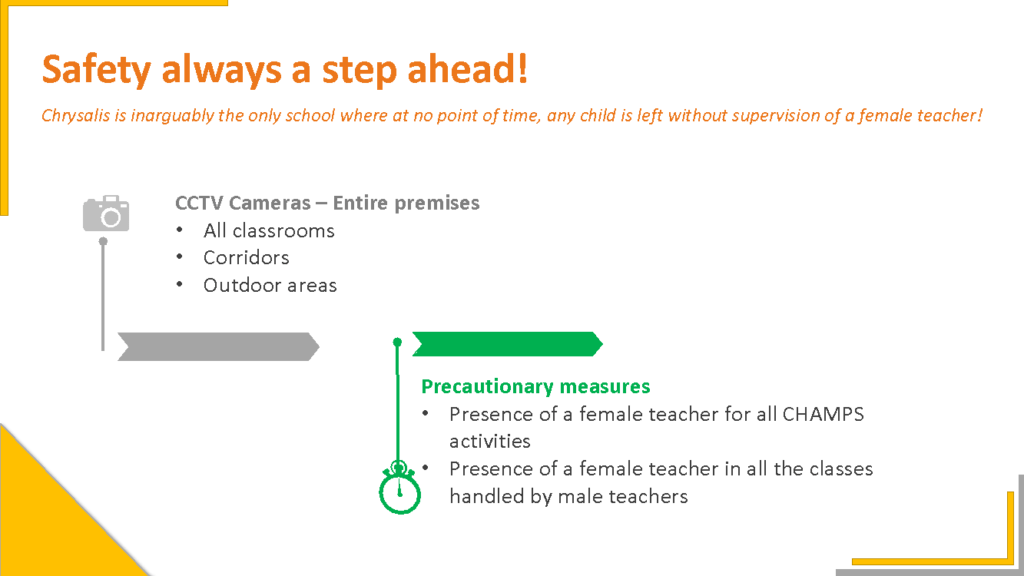What is digital citizenship?
In today’s world, everything is either already digitized or undergoing the shift. Whether it’s how we communicate with one another or order day-to-day groceries, the one term that defines these is “online”. We have practically forgotten about offline channels, be it for visiting a mall and shopping or reading a newspaper in the old-fashioned way. Digitization brings innumerable benefits to the table, but not without risks and concerns. Data privacy, user consent, and respect for one’s space are not just buzzwords in today’s digital community.
Rather, these are necessities- ones that every person or entity should achieve. Now enters the concept of digital citizenship. It encompasses the interactions we have with digital products, ranging from websites to social media profiles, online games, and applications, among others. In other words, it outlines the responsible and ethical use of technology while fortifying a respectful, safe, and informed digital ecosystem.
Key aspects of digital citizenship
- Ethical content usage: Giving proper credit to the creators, eliminating habits that could lead to plagiarism, and legally using digital resources.
- Responsible communication: Avoiding the use of any language having the intent of harming or bullying someone, engaging respectfully with one another on online media, and encouraging the habit of constructive dialogue use.
- Data privacy & security: Respecting others’ data and protecting personal information across the digital ecosystem.
- Digital footprint awareness: Acknowledging how any action performed on the online platform will leave a permanent mark and can impact others as well as an individual’s reputation.
- Critical thinking: Evaluating online content for bias, reliability, and accuracy before using it for any purpose.
Elements of digital citizenship
Consider a framework that outlines a series of principles to guide how we behave, learn, and protect ourselves in the digitized world. This is where Mike Ribble’s theory comes into play. He has listed nine different elements of digital citizenship. His intent was to help individuals navigate through the hidden challenges and underlying complexities of digitization. Whether it’s communication or ethical use of information, his theory offers a comprehensive view, encouraging safer, respectful, and meaningful digital interactions.
Digital access
Despite the world becoming digitized, technological barriers are still persistent. These create a humongous division, which further limits social participation, work, and education. That’s why digital citizenship emphasizes inclusivity and unbiased access to technology. Here’s how.
- It ensures every user has equal access to the digital world for connecting, learning, and contributing without facing barriers.
- Schools, communities, and workplaces are encouraged to practice digital citizenship.
- Connectivity siloes are eliminated to reduce any type of economic and social gaps.
- It also supports personal development and lifelong learning by providing access to ethical and reliable online content.
Digital commerce
Uninformed purchases on the online portals are often associated with poor financial decisions. These transactions usually involve scams and fraud, which would put an individual’s safety at risk. That’s why Mike Ribble has included online commerce in his proposed elements of digital citizenship. It outlines key aspects like:
- The use of safe and secure payment platforms in e-commerce websites and applications.
- His principles encourage users to run detailed research and evaluate the authenticity before making a purchase decision.
- It builds awareness about the digital consumer rights, ensuring everyone can protect themselves from scams.
- Fair trade and ethical business practices are encouraged across multiple platforms so that businesses can deliver an omnichannel user experience.
Digital communication
Whether it’s a misinterpretation of the tone or poor online communication, conflicts have become unavoidable in the digital ecosystem. When two people interact virtually, separated by a screen, communication siloes are bound to arise and persist. That’s why digital citizenship puts more emphasis on streamlining this aspect. Here’s how.
- It encourages users to be clear, precise, and respectful with their comments while interacting with one another.
- Users are taught the right way and timing for using different channels of digital communication, like emails, video calls, and messages.
- Thoughtful wording becomes the primary focus as it helps prevent conflicts and eliminates the risks of online bullying.
Digital literacy
Individuals are still struggling with technology adoption. The lack of clarity about digitization and its benefits has created a sense of fear and unacceptance amongst users globally. This is where digital literacy comes into play. It sheds light on developing skills at the individual level concerning the usage of tools, software products, and online platforms with higher efficacy.
Users are encouraged to dive deep into understanding the emerging tech trends, be it AI chatbots or the use of Virtual Reality in shopping. To top it off, digital literacy also focuses on nurturing and strengthening fact-checking and research abilities in individuals and entities.
Digital etiquette
Practicing poor manners on online platforms will give a huge setback to reputation and relationships. Even the career prospects of individuals can hit rock bottom. That’s why digital citizenship encourages practicing and implementing appropriate etiquette. How? Well’s here’s the answer.
- It encourages brands and individual users to maintain a respectful attitude while engaging via social media, emails, and public forums.
- Users need to avoid the use of any type of offensive language, harassment, or trolling.
- It further promotes positive interactions and an empathetic attitude for cohesive digital communication.
Digital law
Both ignorance and violation of online laws will lead to legal liabilities. Users who are found guilty of the action will be penalized and may have to bear financial compensation. Strict rules and regulations are already in place to protect and strengthen the concept of digital citizenship. That’s why users should gain in-depth knowledge about copyrights, intellectual properties, and plagiarism rules.
Mike Ribble has also talked about raising awareness about hacking, cyberbullying, and illegal file downloads. Both users and companies are encouraged to remain compliant with national regulations and platform rules till the very end. All these are emphasized so much so as to ensure the digital environment we access and use abides by rules and laws.
Digital rights & responsibilities
One of the key elements of digital citizenship is the freedom every participating user should have. It promotes the independence of expressing thoughts and channeling ideas while ensuring no harm is caused to others. Users are encouraged to immediately report any type of illegal online activity or harmful intent. Learning about privacy consent and rights is imperative for everyone so that they can have clarity about their digital rights and responsibilities.
Digital health & wellness
With digitization comes numerous health risks, especially due to increased screen time. People often develop addictions to poor online habits, which, if not controlled on time, could lead to severe consequences. That’s why digital citizenship puts more emphasis on:
- Encouraging proper balance between health and technology
- Promoting ergonomic practices and reducing screen time
- Raising awareness amongst digital communities about the risks of developing addictions
- Supporting mental health through mindful use of technology
Digital security
The last key element of digital citizenship that we will talk about here is digital security. Weak encryption, publishing passwords, and other such practices can put your data at risk. Given how theft and hacking have become prominent in today’s cyber world, every user should acknowledge the need for proper security. Here’s how.
- Using two-factor authentication and strong passwords across different platforms.
- Regularly updating the apps and creating data backups in case of recovery.
- Raising awareness about phishing activities and malware invasion.
- Protecting both organizational and personal information.
Why is digital citizenship important?
Promoting safe and respectful online behavior in education
Students learn more about preventing cyberbullying, interacting respectfully with one another, and using online resources responsibly through digital citizenship. They encounter a safe learning environment where technology can be leveraged to enhance the education quality and make it accessible for everyone. In other words, every student is encouraged to participate positively in both academic and future professional environments.
Fostering professionalism and ethics in the workplace
One of the major benefits of implementing digital citizenship is to ensure every workplace is free of negativity and technological jargon. Whether it’s data protection or ethical communication, different aspects are emphasized greatly so that employees can maintain a professional attitude towards one another. Proper practices and strict rules are put in place to prevent accidental exposure to confidential company information.
Encouraging responsible social media usage
Digital citizenship encourages users to be respectful in messaging and make meaningful, thoughtful posts only across multifarious social media platforms. It raises awareness about being knowledgeable of one’s digital footprint, avoiding being engaged in harmful content, and focusing on constructive discussion. Everyone should maintain a positive presence in the digital ecosystem so that it can reflect personal integrity across all platforms.
Combating misinformation and building media literacy
Almost 6 out of every 10 sources of information are not at all authentic or inaccurate. Relying on these will lead to clouded judgment and biased opinions. That’s why all the elements of digital citizenship encourage users to verify the source’s authenticity and credibility before proceeding any further. With this, one can recognize biases and assess the worthiness of the information.
Protecting privacy and personal data
It also emphasizes the importance of safeguarding personal information across all channels or platforms, be it social media or applications. Users are made aware of identity theft and data misuse. To top it off, they feel encouraged to use better security practices that can help them protect their digital identity and footprint.
Digital literacy vs digital citizenship
| Aspects | Digital literacy | Digital citizenship |
| Definition | It is defined as the ability to find, evaluate, create, and use online information using digital technologies while ensuring higher efficacy. | On the other hand, it outlines the principles that educate users about responsible and ethical use of different technologies. |
| Focus | The primary focus is put on developing technical skills and knowing more about digital tools. | Emphasis is given on safety, behavior, and respect in the digital ecosystem. |
| Key skills | Knowledge is required in navigating software, operating digital devices, using search engines, and creating digital content. | Users are encouraged to practice online etiquette, protect privacy, respect intellectual property, and combat misinformation. |
| Goals | The main goal is to allow users to become more proficient and adaptable in using emerging technologies. | Digital citizenship has the goal of making users responsible, respectful, and safe participants in the digital community. |
Best practices for safe and responsible online behavior
As a responsible digital citizen, you should learn and adopt a couple of practices that will help you access the online media safely. Here’s how.
- Always use strong and unique passwords for different digital platforms, along with enabling two-factor authentication.
- Ensure you engage respectfully in different online communication forms and avoid harassment and hate speech.
- Think before you upload any post on social media. Consider the long-term impact your digital footprint will make.
- Keep all your apps and software programs up-to-date and create data backups.
- Be cautious about suspicious links, phishing emails, and unknown file downloads.
- Respect the privacy of others and never share personal information or confidential data without consent.
Final words
Given how the world is becoming digitized, every user needs to become more responsible and aware of the proper use of technology. This is where digital citizenship comes into play. It outlines the techniques and practices that will allow individuals to protect themselves from cybercrimes while using online resources unbiasedly. Mike Ribble has already outlined the key elements that will help others become responsible, respectful citizens in the digital community. With this, we can say that only by practicing these can we enjoy all the perks of digitization and emerging technologies.
FAQs
How does digital citizenship affect online activism and social change?
The primary goal of digital citizenship is to make online activism impactful, credible, and inclusive to drive meaningful political and social changes. That’s why it educates users about evaluating the credibility of online information, using respectful dialogues, and advocating ethics.
Can responsible digital behavior reduce the spread of fake news?
Mike Ribble has outlined that sharing credible and accurate information, avoiding clickbait, and verifying sources can reduce the risks of misinformation spread and the risks of cyberbullying.
What is the role of empathy and emotional intelligence in digital spaces?
Both these attributes encourage individuals to avoid online conflicts, respond respectfully, and foster positive relationships on various online platforms. This can make the digital ecosystem safe and inclusive for everyone.
How does digital citizenship apply to online gaming and virtual communities?
Digital citizenship promotes respectful communication, fair play, and protection against cyberbullying for all virtual space users and digital gamers.
What are some global approaches to teaching digital citizenship in schools?
Numerous countries have implemented innovative approaches to teach the importance of digital citizenship to students. These include integrating the concepts into the curriculum, offering workshops, and using interactive tools for education.
How can businesses and organizations support digital citizenship among employees?
Organizations and businesses should establish clear data privacy policies, provide employee training, and promote ethical digital practices.
Are there laws or regulations that influence digital citizenship practices?
From cybercrime regulations to privacy laws and intellectual property rights, several regulations and laws have been put in place to encourage users adopt different digital citizenship practices.


